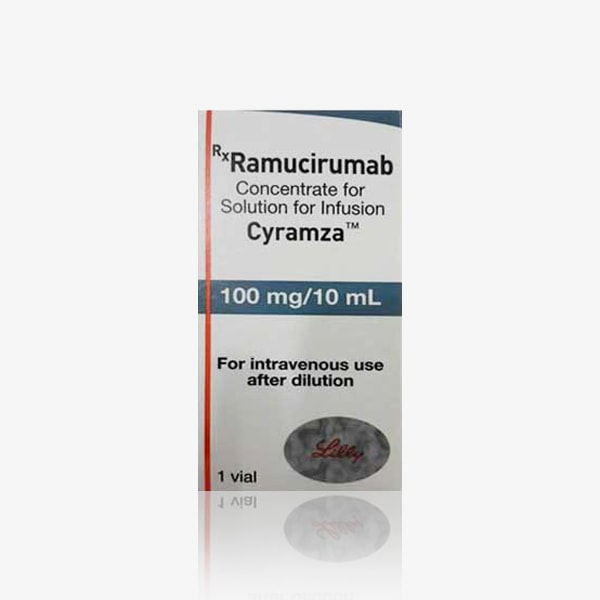
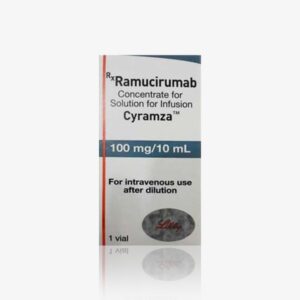
Buy Cyramza : Ramucirumab 100 mg/10 ml Injection Online
$480.43
Brand Name : Cyramza
Composition : Ramucirumab
Manufactured by : Eli Lilly and Company India Pvt. Ltd.
Strength : 100mg/10ml
Form : Injection
Packing : Pack of 1 Vial
Prescription Required *
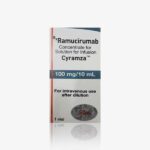
Buy Cyramza : Ramucirumab 100 mg/10 ml Injection Online
$480.43
- Description
- Reviews (0)
Description
Usage: Cyramza (ramucirumab) is a monoclonal antibody used in the treatment of certain cancers. It is often prescribed for advanced or metastatic gastric cancer, gastroesophageal junction adenocarcinoma, and non-small cell lung cancer (NSCLC). Ramucirumab is specifically designed to inhibit the vascular endothelial growth factor receptor 2 (VEGFR-2), thereby suppressing angiogenesis and slowing tumor growth.
Mechanism of Action: Ramucirumab targets VEGFR-2, a receptor involved in angiogenesis, the process by which new blood vessels are formed. By inhibiting this receptor, Cyramza helps restrict the blood supply to cancerous tumors, limiting their ability to grow and spread.
Dosage and Administration: The dosage and administration of Cyramza depend on the specific type of cancer being treated and the patient’s individual health status. It is typically administered as an intravenous infusion, with the rate and frequency determined by the healthcare provider.
Combination Therapies: Cyramza is often used in combination with other anticancer therapies, such as chemotherapy. The specific combination and treatment plan will be decided by the oncologist based on the characteristics of the cancer and the patient’s condition.
Monitoring and Adjustments: Patients receiving Cyramza may undergo regular medical monitoring, including imaging scans and laboratory tests, to assess the response to treatment and manage potential side effects. Dosage adjustments or changes in the treatment plan may be made based on the individual’s response.
Side Effects: Common side effects of Cyramza may include high blood pressure, fatigue, diarrhea, and changes in blood cell counts. Serious side effects, though less common, can include bleeding, blood clots, and gastrointestinal perforations. It’s important for patients to report any unusual or severe side effects to their healthcare provider.
Precautions: Before starting Cyramza, patients should inform their healthcare provider about their medical history, current medications, and any pre-existing conditions, especially those related to bleeding or clotting disorders. Due to the risk of bleeding, patients should avoid using nonsteroidal anti-inflammatory drugs (NSAIDs) while on this medication.
Conclusion: Cyramza (ramucirumab) is a targeted therapy used in the treatment of certain advanced cancers. Its mechanism of action involves inhibiting VEGFR-2 to impede angiogenesis and slow tumor growth. Patients prescribed Cyramza should closely follow their healthcare provider’s instructions and report any concerns or side effects promptly.
Be the first to review “Buy Cyramza : Ramucirumab 100 mg/10 ml Injection Online” Cancel reply
Related Products
Buy Abretone : Abiraterone 250 Mg Tablets 120'S Online
Total Sales: 0
SKU: 515693
Buy Biobin : Cytarabine 1000 Mg Injection Online
Total Sales: 0
SKU: 999962
Buy Casodex : Bicalutamide 50mg Tablets Online
Total Sales: 0
SKU: 626446
Buy Clokeran : Chlorambucil 5 Mg Tablets Online
Total Sales: 0
SKU: 858738
Buy Dacotin : Oxaliplatin 50 Mg Injection Online
Total Sales: 0
SKU: 132837


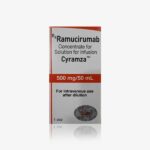



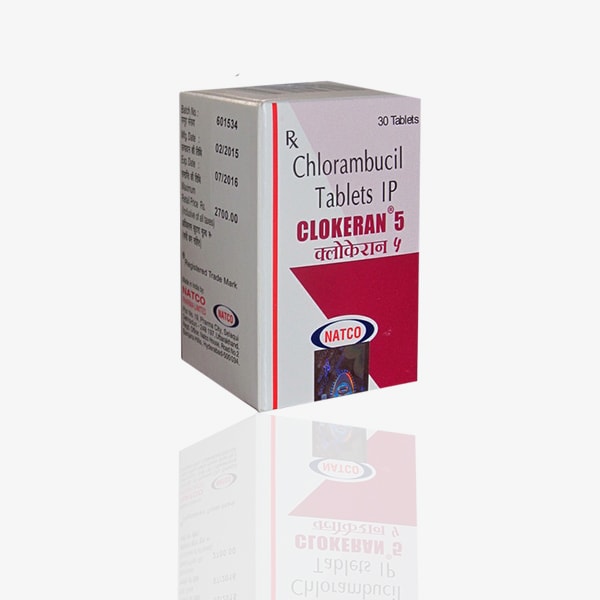

Reviews
There are no reviews yet.